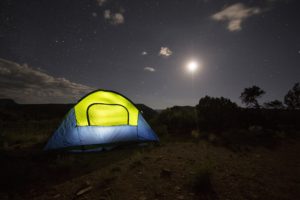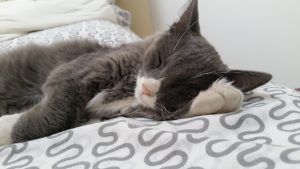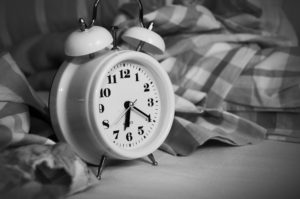The importance of sleep, the negative consequences of sleep deprivation and steps you can take to improve your sleep and therefore overall health.
Sleep. Why is sleep so difficult some nights? It was just a few nights into my family’s current road trip when I found myself wide awake, struggling to sleep. I lay awake in our tent in Morro Bay, California, and like many people that night, I was unable to sleep. My mind had started to clear from the recent stress of moving and embarking on an open ended road trip. I was in a beautiful location along California’s central coast. `We enjoyed dinner on the beach while watching the sunset. I was warm and toasty as I snuggled in my sleeping bag. So, why couldn’t I sleep? I decided to follow the advice of the professionals and not fret it and not fight it. I took a deep breath and felt my head sink into the pillow. I listened to owls hooting in the nearby trees. I focused on the big dipper shimmering in the clear November sky. A breeze blew, and I thought of the hundreds of monarch butterflies dripping from the eucalyptus trees surrounding our campsite, waiting for the warmth of day to spread their wings. Suddenly…it seemed…the birds were chirping, and I opened my eyes to see sunlight shining into the tent. Morning had arrived.

Unfortunately in our society, the importance of sleep is often overlooked. We try to fit more and more into our day, and sadly, sleep is usually what is compromised. In an effort to improve health, many people exercise and clean up their diet. However, improving one’s sleep is often a forgotten component in an overall health improvement plan. Functioning on little sleep seems to be a badge of honor when in reality it is more of a silent disease, slowly eating away at one’s health. Current recommendations for adults are 7-9 hours of sleep each day as reported by the National Sleep Foundation. One-third of our life is spent sleeping, and the other two-thirds is greatly influenced by one’s quantity and quality of sleep. Sleep is designed to heel, repair and stimulate growth, and when it is compromised, these restorative processes are also compromised. Prominent researcher, Dr. William Dement, stated in his book “The promise of Sleep”,
“There is plenty of compelling evidence supporting the argument that sleep is the most important predictor of how long you will live, perhaps more important than whether you smoke, exercise, or have high blood pressure or cholesterol levels.”
Whether or not you agree with Dr. Dement’s bold statement, it does force one to not underestimate the value of sleep. When was the last time you woke up feeling rested and rejuvenated? If you are like most people, sadly you can’t remember. Many people walk around each day sleep deprived. Sleep deprivation affects multiple body systems and therefore has potential to contribute to disease and lower quality of life. Let’s take a closer look at how our body is specifically affected by sleep deprivation.

The Immune system: When we are sick, we often want to sleep. This is no coincidence. Sleep promotes a stronger immune system. Two notable studies examined the level of protective immune system cells after one night of sleep deprivation. The first study published in 2004 in the Journal of Nature Reviews Immunology describes a reduction in the bodies natural killer cells after just one night of sleep loss. The second study published in the Journal of American Medical Association in 2002 describes a reduction of lymphocyte counts of up to 50% after one night of only four hours of sleep. Taking a red eye or staying up late to finish a project truly does make one more susceptible to illness. Research by JM Mullington in 2010 showed that sleep deprivation leads to an increase in inflammatory cytokines, small proteins released by cells which trigger inflammation. Chronic inflammation has been targeted as playing a significant role in the disease process.
The endocrine system: In the 1960’s, Americans self reported getting 8-8.9 hours of sleep each night. By 2002, Americans reported getting less than 7 hours of sleep each night as described in the National Sleep Foundation’s Sleep in America Poll. Interestingly, as Americans tended towards less sleep, the rate of obesity increased. One must wonder if there is a link between sleep deprivation and obesity. Perhaps the endocrine, or hormonal system, provides a vital answer. In his article entitled “Sleep and Obesity”, Beccuti Gugliemo looks at multiple studies aimed at analyzing hormonal levels after a short sleep duration of less than six hours. The studies found that three hormones contributing to weight control – cortisol, leptin and ghrelin – are each affected by diminished sleep.
Cortisol is a hormone released by the body in response to stress. Normally, cortisol levels decrease in the evening to allow for low levels before bedtime. If one is partially sleep deprived, the rate of cortisol lowering in the evening is slowed, resulting in unnaturally elevated cortisol levels at bedtime. Elevated cortisol levels are linked to the development of impaired glucose metabolism and insulin resistance, both known risk factors for diabetes and obesity.
Leptin is a hormone released by fat cells that triggers feelings of satiety and suppresses appetite while conversely ghrelin is secreted by the stomach and stimulates appetite. Both hormones affect food intake. With sleep deprivation (6 hours or less), morning levels of leptin are reduced, and levels of ghrelin are greater than normal. Sleep loss alters the body’s ability to accurately signal its caloric needs, and this results in more eating than necessary. In a society where calories are freely available, irregular levels of leptin and ghrelin can contribute to weight gain and obesity. Interestingly, carbohydrates were the food of choice when leptin levels were low and ghrelin levels were high after a night of sleep deprivation. No wonder bagels, muffins and doughnuts are often the food of choice along with coffee after a night of reduced sleep.

It does not come as a surprise then that there may be a relationship between body mass index (BMI) and sleep duration. BMI is an estimate of one’s body fat based upon height and weight. It is used by the medical community to help estimate one’s risk for various diseases. One is considered overweight with a BMI greater than 25. In both the Wisconsin Sleep Cohort Study and a study at the Eastern Virginia Medical School, both analyzing sleep habits of over 1,000 people, overweight participants reported less sleep than normal weight participants based on BMI. It is often recommended to increase activity in order to decrease weight or prevent weight gain. However, recommending an increase in the most sedentary activity there is, sleeping, may also need to be part of a healthy weight loss plan.
The neurological system: Sleep deprivations effect on the neurological system manifests itself in the form of car accidents, poor relationships and work related errors. The CDC reports that sleep deprivation contributed to 72,000 traffic accidents in the US in 2013. Sleep loss contributes to decreased attention span, increased irritability, slowed reaction times, decreased memory, lower enthusiasm and diminished creativity. When the brain is not firing efficiently with all cylinders, the outcome can sadly be deadly as seen in the Exxon Valdez oil spill, the Challenger explosion and the nuclear accident at Three Mile Island.
The musculoskeletal system: The human body needs growth hormone for muscle integrity, stimulating bone growth, healing, and body repair. As Mary O’Brian reports in her book, “The Healing Power of Sleep”, 80% of our daily allotment of growth hormone is made by the pituitary gland during deep sleep. When sleep is deficient, levels of growth hormone are also deficient. Growth hormone deficiency is associated with decreased muscle mass, decreased bone density, increased fatigue, depressed mood and delayed healing. A 2005 study described in the Journal of American Geriatric Society describes a link between insomnia, which is defined as difficulty falling asleep or staying asleep, and falls. Due to decreased production of growth hormone secondary to impaired sleeping, muscle mass and bone density are diminished, both necessary for protecting against falls. If so much healing occurs during sleep, one can’t help but to question the seemingly backward practice of waking hospital patients during the night for routine vital signs. No wonder patients express a desire to go home to get some sleep.
Sleep is defined as “the natural periodic suspension of consciousness during which the powers of the body are restored”. It is a complex state regulated by neurotransmitters in the brain. There are five sleep stages, and it takes an adult about 90 minutes to pass through all stages.
Stage 1: Light, shallow sleep, easily awakened, not refreshing.
Stage 2: Longest stage, some may still awake easily in this stage, older adults or those with chronic illness may spend most of the night in this stage.
Stage 3+4: Deep sleep, difficult to wake up during this stage, disoriented if alarm goes off. Growth hormone made. Neurotransmitters important for memory, learning and focus are also made during stage 4 sleep.
Stage 5: Dream stage or REM (rapid eye movement stage) characterized by shallow, irregular breathing, eyes move in a jerky manner, blood flow to the brain increases and arm and leg muscles are paralyzed to prevent us from dangerously acting out dreams. As morning approaches, more time is spent in this stage. Time in REM increases creativity.
Aging does not improve sleep, and changes in sleep start occurring in our 30s. As we age, the percentage of light stage 1 sleep increases, the percentage of deep stage 3 and 4 sleep decreases, there is increased waking up during the night, and increased time is needed to fall asleep. Although the odds are not in our favor for improving the quality and quantity of sleep as we age, there are things we can do to try and improve our sleep patterns naturally.

Follow natural light cues to help maintain the circadian rhythm. Circadian rhythm is our body’s “clock”. It is a natural cycle, based on 24 hours, that tells our body when to sleep, when to rise and when to eat. It is directed by sunlight and temperature. When darkness sets in, our body prepares for sleep with the release of melatonin. In the morning, daylight signals waking. Unfortunately, due to the shift work, travel, and most notably to the invention of artificial light, people no longer adhere to natural circadian rhythms when choosing sleep or wake times. When this rhythm becomes disrupted, one is at risk for sleep disturbances, obesity, diabetes, depression and seasonal affective disorder. Structuring your sleep based more on the environment’s natural light cycle by dimming lights at night, establishing an earlier bedtime, exposing your eyes to light soon upon waking and not “burning the midnight oil”, will slowly help restore your natural circadian rhythm.
Establish a routine before bed to help reduce stress levels and calm the mind and body. Meditation, yoga or a warm bath may be helpful.
Eliminate “screen time”, which refers to computers, televisions, phones and other smart devices, at least 30-60 minutes before sleeping. Our need to be “connected” up until the moment we go to sleep is damaging our sleep. Light from a computer or television enters the retina and delays the production of melatonin needed for the onset of sleep. Computer and television viewing also stimulates the brain and causes a release of cortisol, the stress hormone, all at a time when the brain should be calming down. Long before television, emails, and the internet, people spent their evenings reading books, (not electronic readers!) playing instruments or doing handwork such as quilting. I bet that Laura Ingalls Wilder and her family did not have issues with sleep like many people do today. Perhaps we should learn from history. However, reading before bed does come with mixed reviews. For some, reading provides a wind down period and promotes relaxation as cortisol is decreased. However, for others, reading stimulates the brain too much and is therefore not a relaxing activity before bed. Music has been shown to improve sleep, for it helps shorten stage two of the sleep cycle, and therefore one enters stage three quicker. Music helps to lower heart rate and slow breathing. Of course the music selection matters, and Guns and Roses may not be as beneficial as Beethoven. Music with a slower rhythm of closer to 60 beats per minute is optimal, for as you fall asleep, your heart rate slows towards 60 beats per minute. As long as the music has a slower beats per minute, the selection can be very personal. Check out songsbpm.com to see if your favorite music would be ideal for nighttime listening.
Be conscious of caffeine intake. Caffeine has a half-life of 3-5 hours which means it takes that long to clear half of the caffeine from your system. Caffeine’s effects may last for 8-14 hours depending on the sensitivity of the individual. A study in the Journal of Clinical Medicine found that consuming 400mg of caffeine, roughly the amount in a 16 oz Starbucks drip coffee, six hours before bedtime resulted in a one hour reduction in sleep. This lost sleep can add up quickly.

Be conscious of alcohol consumption. According to the National Sleep Foundation, alcohol is used by 20% of the population as a means to promote sleep. True, alcohol does help produce a faster sleep onset by increasing the brain’s production of adenosine, a chemical that contributes to falling asleep. However, alcohol then causes a reverse effect on adenosine levels resulting in wakefulness during the middle of the night. It also blocks REM stage sleep. Alcohol is a diuretic which makes nightly trips to the bathroom more frequent, thus further disrupting sleep. No wonder people often wake up feeling groggy and tired after consuming alcohol.
Make exercise part of your daily routine. Moderate exercise helps to relieve stress and thus reduce cortisol levels. However, timing of the exercise for optimal sleep benefit likely varies with each individual. Try moderate late afternoon exercise, preferably outdoors. The daylight helps with the circadian rhythm, and the exercise results in a body temperature increase followed by a natural cooling a few hours post exercise. This lowering of temperature contributes to a normalized circadian rhythm and prepares one for sleep. The key to improving sleep with daily exercise is consistency with exercise over time. It is important to physically tire out your body each day as much as mentally tiring your mind.
Avoid sleeping pills if possible. Try for natural ways discussed above for improving sleep before considering pharmaceutical agents. Unfortunately, many sleeping pills have unwanted side effects, poorly interact with other medications and can alter overall sleep architecture. Without a prescription, many people have taken an antihistamine such as Benadryl or Tylenol PM on occasion to help them sleep. These over the counter antihistamines do help you fall asleep faster, for the number one side effect is drowsiness. However, for an adult, it takes 7-8 hours for half of the main ingredient to clear from the body, and for the elderly, the half-life may exceed 100 hours as reported in Mary O’Brian’s book, “The Healing Power of Sleep”. Antihistamines also work against acetylcholine, which is the most important neurotransmitter for memory, and interestingly, it is the most deficient neurotransmitter in Alzheimer’s disease. If you need to be sharp in the morning, or you value your memory, stay clear of using antihistamines for sleep. Sleeping pills have evolved over time, and it is wise to do research before blindly starting a sleeping pill. They are not harmless as many doctors and advertisements may lead you to believe.
If after turning off the television, silencing your phone, sewing quilts by candle light and stopping your habit of a nightly glass of red wine does not improve your quantity and or quality of sleep, then perhaps you may benefit from a sleep consultation with a doctor. You may have an underlying medical disorder such as sleep apnea or snoring. Insomnia can also be a side effect of various illnesses and disease processes.
The value of sleep should not be overlooked or underappreciated. Taking steps now to improve your sleep will benefit you both tomorrow and in the long run. Remember though, lasting improvements happen slowly. As Rome was not built in a day, one cannot expect a restful 8 hour night sleep after years of sleep neglect. Ralph Waldo Emerson said, “Adopt the pace of nature. Her secret is patience.”

So, tonight if you find yourself unable to sleep, don’t worry. Perhaps listen to some music. I will listen to nature’s music from my tent, the most beautiful music there is. Good Night.

